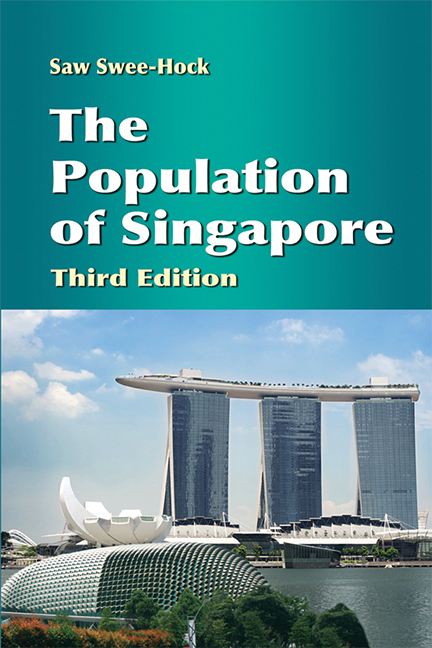Book contents
- Frontmatter
- Contents
- List of Tables
- List of Figures
- Preface
- Preface to Second Edition
- Preface to Third Edition
- 1 Background
- 2 Population Growth and Distribution
- 3 Changing Population Structure
- 4 Migration
- 5 Mortality Trends and Differentials
- 6 Marriage Trends and Patterns
- 7 Divorce Trends and Patterns
- 8 Fertility Trends and Differentials
- 9 Family Planning, Abortion and Sterilisation
- 10 Fertility Policies and Programmes
- 11 Immigration Policies and Programmes
- 12 Labour Force
- 13 Future Population Trends
- Appendix
- Bibliography
- Index
7 - Divorce Trends and Patterns
Published online by Cambridge University Press: 21 October 2015
- Frontmatter
- Contents
- List of Tables
- List of Figures
- Preface
- Preface to Second Edition
- Preface to Third Edition
- 1 Background
- 2 Population Growth and Distribution
- 3 Changing Population Structure
- 4 Migration
- 5 Mortality Trends and Differentials
- 6 Marriage Trends and Patterns
- 7 Divorce Trends and Patterns
- 8 Fertility Trends and Differentials
- 9 Family Planning, Abortion and Sterilisation
- 10 Fertility Policies and Programmes
- 11 Immigration Policies and Programmes
- 12 Labour Force
- 13 Future Population Trends
- Appendix
- Bibliography
- Index
Summary
In this chapter we will examine marital dissolution so as to complete our account of nuptiality trends and patterns. Divorce, the final outcome of irreconcilable marital discord, is seen to create social problems for the families concerned and for the community at large. It is also common to view a high divorce rate in a society like Singapore as a sign of diminishing family stability and weakening Asian cultural and social values. Not surprisingly, a rising trend in divorce incidence often generates considerable public concern and debate. From the demographic point of view, changes in the divorce incidence would have some impact on the level of fertility since a breakup in marriage will effectively reduce the period of reproductive life of the woman.
The study of divorce in some countries is often handicapped by a paucity of statistics owing to the absence of an ongoing system of registering divorce cases and compiling statistics from such cases. Though records of divorce cases have been kept by the relevant authorities in Singapore, it was not until the early eighties that the Department of Statistics launched a project to compile divorce statistics on a regular basis. Two separate sets of divorce statistics are compiled nowadays: Muslim divorce statistics from the register of divorces administered by the Shariah Court, and non-Muslim divorce statistics from the records of divorce case files maintained by the Family Court Registry. The two sets of annual statistics, along with some data for the years 1980–83, are made available in the annual publication entitled Statistics on Marriages and Divorces for the year 1984 onwards. These statistics do convey an accurate picture of divorce trends and patterns in Singapore since marriages and their dissolution are effected within the legal framework of the country; marriages and divorces by consensus outside the law are not legally recognised.
DIVORCE CUSTOMS AND LAWS
The marital dissolution of non-Muslim marriages is not handled by the Registry of Marriages but by the Family Court in accordance with specific sections of the Women's Charter. In instances where the divorce petition is contested, the court would arrive at a decision after hearing the submissions presented by both the parties concerned. If the petition is uncontested, only the party seeking the divorce will be called upon to present the submissions.
- Type
- Chapter
- Information
- The Population of Singapore , pp. 127 - 151Publisher: ISEAS–Yusof Ishak InstitutePrint publication year: 2012



